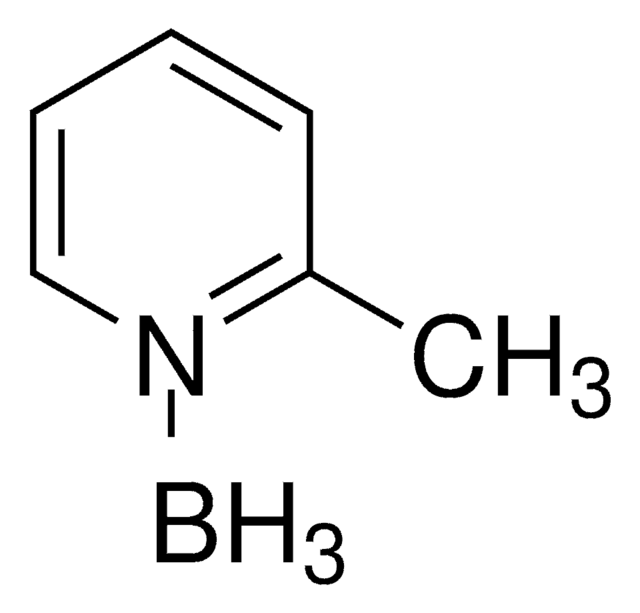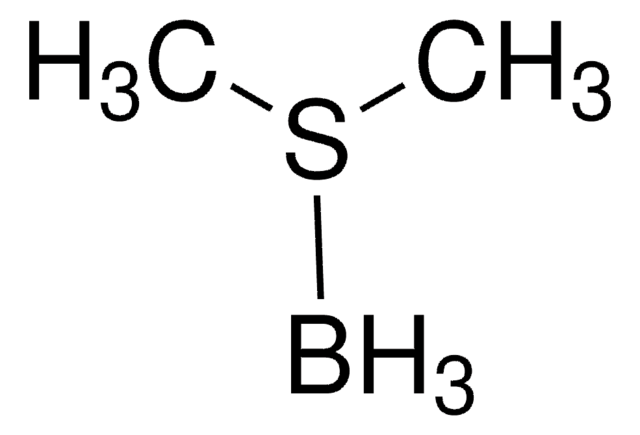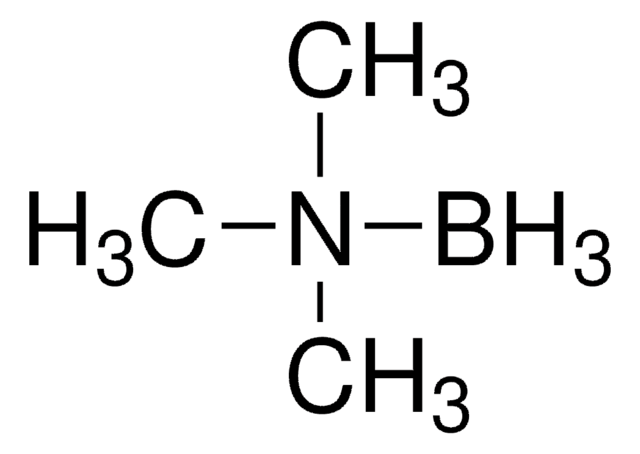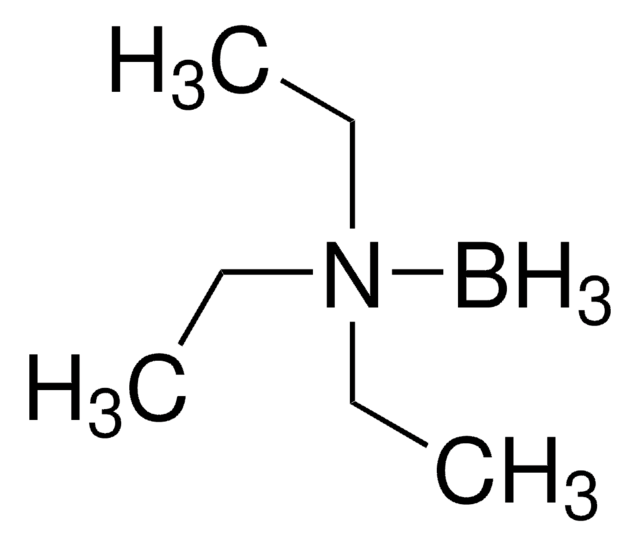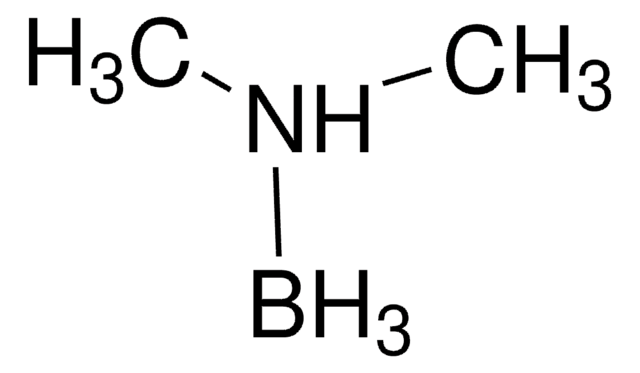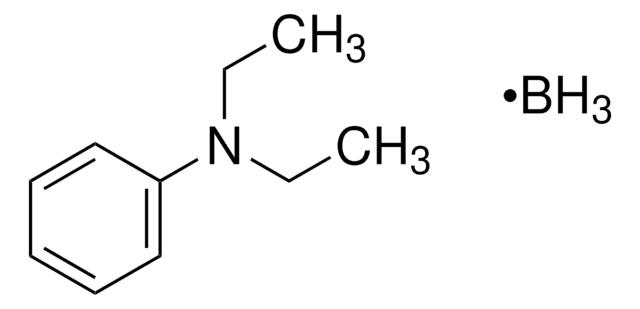179752
Borane pyridine complex
~8 M BH3
Sinónimos:
NSC 10219, NSC 53324, Pyridine borane, Trihydro(pyridine)boron
About This Item
Productos recomendados
Formulario
liquid
idoneidad de la reacción
reagent type: reductant
concentración
~8 M BH3
índice de refracción
n20/D 1.532 (lit.)
mp
10-11 °C (lit.)
densidad
0.92 g/mL at 25 °C (lit.)
temp. de almacenamiento
2-8°C
cadena SMILES
[BH3-][n+]1ccccc1
InChI
1S/C5H8BN/c6-7-4-2-1-3-5-7/h1-5H,6H3
Clave InChI
LPGWNCNRGQANGC-UHFFFAOYSA-N
Aplicación
- Investigations of site energy distribution functions from Toth isotherm for adsorption of gases on heterogeneous surfaces
- Preparation of α−alkyl-β-hydroxy esters
- Regioselective immobilization of short oligonucleotides to acrylic copolymer gels
- Preparation of Igs conjugated with viral peptide epitopes
- Sintering of silicon carbide
Reducing agent for high performance liquid chromatography analysis of oligosaccharides
Modifier in decant oil affecting its carbonization to mesophase pitch
Precaución
Otras notas
Palabra de señalización
Danger
Frases de peligro
Consejos de prudencia
Clasificaciones de peligro
Acute Tox. 1 Inhalation - Acute Tox. 3 Dermal - Acute Tox. 3 Oral - Eye Irrit. 2 - Flam. Liq. 2 - Skin Irrit. 2
Código de clase de almacenamiento
3 - Flammable liquids
Clase de riesgo para el agua (WGK)
WGK 3
Punto de inflamabilidad (°F)
69.8 °F
Punto de inflamabilidad (°C)
21 °C
Elija entre una de las versiones más recientes:
¿Ya tiene este producto?
Encuentre la documentación para los productos que ha comprado recientemente en la Biblioteca de documentos.
Los clientes también vieron
Nuestro equipo de científicos tiene experiencia en todas las áreas de investigación: Ciencias de la vida, Ciencia de los materiales, Síntesis química, Cromatografía, Analítica y muchas otras.
Póngase en contacto con el Servicio técnico